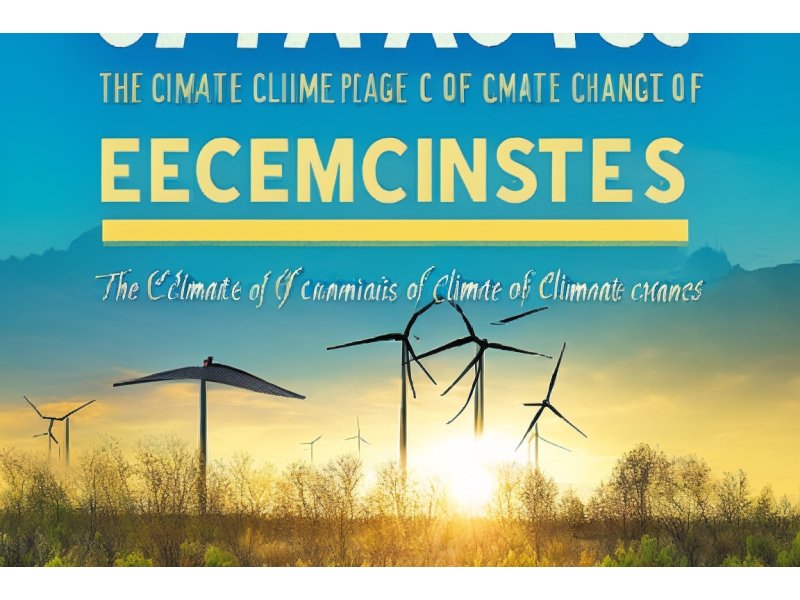
Introduction
Climate change has become an undeniable reality, and its consequences are increasingly evident. In the face of this global challenge, there is a growing urgency to address climate change, transition to renewable energy sources, and implement sustainable practices. While there are upfront costs involved, it is crucial to understand the long-term economic benefits that come with taking action. In this blog, we will explore the economics of climate change, discussing the costs and benefits of addressing this critical issue and embracing a sustainable future.
1. The Costs of Inaction
Before delving into the benefits of addressing climate change, it is essential to recognize the significant costs associated with inaction. Extreme weather events, rising sea levels, and ecosystem degradation all come with substantial economic consequences. The World Economic Forum's Global Risks Report estimates that climate-related events account for five out of the top ten global risks in terms of both likelihood and impact. These costs manifest in various ways, including property damage, infrastructure failure, increased healthcare expenditures, and decreased agricultural productivity.
2. Transitioning to Renewable Energy
One of the primary strategies to mitigate climate change is transitioning from fossil fuels to renewable energy sources. While this shift requires upfront investments, it offers several long-term economic benefits.
a) Job Creation: The renewable energy sector has the potential to generate millions of jobs. A study by the International Labour Organization suggests that transitioning to a green economy could create 24 million new jobs globally by 2030. These jobs span various sectors, including manufacturing, construction, and research and development.
b) Cost Savings: Renewable energy technologies, such as solar and wind power, have witnessed significant cost reductions in recent years. As the costs of production, installation, and maintenance decrease, renewable energy becomes increasingly competitive with fossil fuels. Consequently, countries and businesses that invest in renewables can reduce their energy costs over time.
c) Energy Independence: Relying on fossil fuels often involves importing energy resources, leading to significant expenditure and vulnerability to price fluctuations. By embracing renewable energy, countries can enhance their energy independence, reduce reliance on imports, and stabilize energy prices.
3. Implementing Sustainable Practices
Beyond transitioning to renewable energy, implementing sustainable practices across various sectors of the economy can yield both environmental and economic benefits.
a) Improved Efficiency: Sustainable practices, such as energy-efficient technologies, waste reduction, and recycling, can enhance resource efficiency and reduce operating costs for businesses. By optimizing resource utilization, companies can become more competitive and achieve long-term cost savings.
b) Market Opportunities: The transition to a sustainable economy opens up new market opportunities. The demand for sustainable products and services is growing rapidly, presenting businesses with the chance to cater to environmentally conscious consumers and tap into emerging green markets.
c) Health and Well-being: Addressing climate change and embracing sustainable practices can have positive impacts on public health. Reducing air pollution, improving access to clean water, and promoting sustainable transportation options can lead to healthier communities and reduced healthcare costs.
Conclusion
While the economic costs of addressing climate change and transitioning to renewable energy are undoubtedly significant, they pale in comparison to the long-term benefits. Taking action on climate change not only mitigates environmental risks but also generates economic opportunities, fosters innovation, and improves public health. By investing in a sustainable future, we can create a more resilient and prosperous society for future generations. It is crucial for governments, businesses, and individuals to recognize the economic imperative of combating climate change and make informed decisions that drive us toward a sustainable and thriving global economy.
Share This News